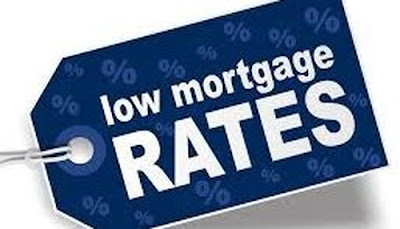If you are looking to purchase a new home, check out your local real estate market and talk to home sellers. If you already have a house, your realtor will be able to tell you how much your loan can be reduced through offset mortgages and other savings that a buyer may qualify for. Ask them to break down the savings you could be enjoying in your loan and see if you're eligible. Most borrowers qualify for some kind of offset mortgage. Real estate investors are great sources for offset mortgages. Typically, they'll make money on the sale of the home, but since they've paid taxes on the property for years, they'll have some extra left over in their pocket.
The biggest factor in getting the best rate when refinancing is your current credit rating. Lenders all have different criteria for what they're willing to consider when considering your application. Before you even submit an application, lenders will pull your credit report and review it for any mistakes. If you have negative information on your report, it can negatively affect the possibility of you getting the best rate possible. Be sure to dispute any errors with your current mortgage lender, your next lender, or the credit reporting agencies.
Another important factor is your loan to value ratio. Your loan to value ratio is the percentage of your total house value to the total amount you owe on your mortgage. Your loan to value ratio is the largest factor in determining your interest rate. Lenders will want to know how likely you are to be able to make your monthly repayments. High levels of unsecured debt can lower your interest rate, but that means your repayments will be higher.
Mortgage lenders use your employment history, income and other financial considerations to help determine the amount that you could qualify for in order to refinance your current mortgage. Borrowers with great credit and steady employment are typically favored by mortgage lenders. Other financial considerations that may affect your interest rate will include your credit score, length of time you've held your current mortgage, your ability to repay loans and how much debt you currently have. Many applicants have found that applying with several lenders will increase their chances of receiving the best mortgage deals mortgages. By having multiple lenders looking at your application you increase the likelihood that at least one lender will approve you.
In the last few years it has become more common for borrowers to switch to fixed mortgage rates when they take out a new mortgage. However, if you plan to refinance in the near future you should also consider variable rate mortgages and tracker rate mortgages. Fixed rate mortgages come with a pre-determined interest rate, whereas variable rate mortgages come with flexible interest rates. With both types of mortgages you can keep your monthly repayments at whatever rate your lender sets and you won't have to worry about your interest rate changing.
It is also possible to apply for no doc loans and you can find many lenders who offer no doc loans. This type of mortgage usually require a two or three-year loan agreement, so if you can verify your employment with a current pay stub from your last job then your chances of obtaining a no doc mortgage with flexible rates are very good. On the other hand if you do not have enough proof of income then the mortgage provider may insist on a three-year loan agreement with a tracker mortgage, which means that your interest rate will change according to the Bank of England base rate. This tracker mortgage feature is only available with some providers and you may have to search for a different mortgage if you do not want to lock into a very high interest rate.
Another type of mortgage debt that you should consider if you are thinking about refinancing is interest only mortgages, also known as first home mortgages. An interest only mortgage means that your repayments will be lower than your repayments on a normal mortgage, because your interest only repayments are lower. However, as with any loan there are advantages and disadvantages associated with it and you should consider this carefully before you apply for an interest only mortgage. A good reason to choose interest only mortgages to repay a previous loan is that if interest rates fall further in the future you will make lower repayments, therefore improving your financial situation.
